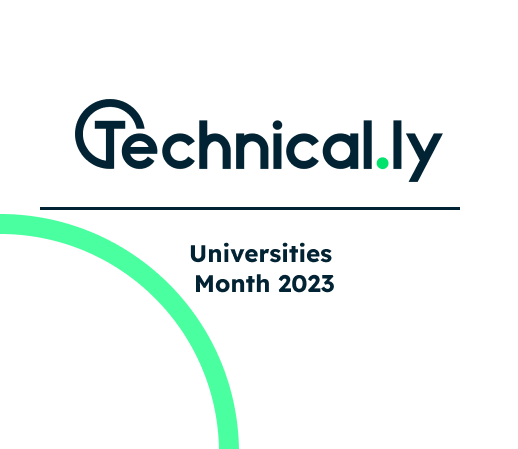A report by the Common App found first-generation applications were up by 22% between 2019 and 2022 nationally. The Common App, a tool built to help students apply to multiple colleges at once, defines first-generation students as those who are the first in their families to acquire a four-year college degree.
First-generation college students’ families appear to be more engaged than the families of their peers, said Leslie Gale, the VP of customer success for CampusESP. The Center City-based edtech company makes a digital platform that facilitates communication between colleges and students’ families.
“Since we started, we’ve seen that first-generation families have a higher rate of engagement, like opening emails,” she told Technical.ly. CampusESP’s data shows the average open rate of emails for first generation families was 69%, while the overall average rate was 54%. First-gen families also request texting-based information from CampusESP at higher levels than other families — 50% compared to 36%.
The tech company’s software is the go-between for its university clients and the students’ families, managing communication between the two parties. Each university client CampusESP works with has different goals — maybe the school is really focused on growing student enrollment through family engagement, while others might be focused on retention or student success, Gale said. But in recent years, they’re getting the request to do more relating to first-generation families.
“They’re seeing that rise in their student population, and they want to make sure that their family members have the information they need to support their students.”Leslie Gale CampusESP
“They’re seeing that rise in their student population, and they want to make sure that their family members have the information they need to support their students,” she said.
Families interact with CampusESP’s platform primarily through emails and a digital platform, Gale said. The emails provide families with critical updates about what’s happening on campus, including regular newsletters and events. They can also receive what CampusESP calls “nudges” — reminders about upcoming steps the family needs to take for enrollment, housing or registration for classes or programs. A family could likely use CampusESP’s software from when their student is a high school junior starting to look at colleges all the way through their college graduation.
More first-gen families of students at Philadelphia-area schools have been using the platform. Between March 2022 and March 2023, Cabrini University saw a 4.5% increase, Cheyney University saw a 7.8% increase, Drexel University saw a 25.6% increase, La Salle University saw a 23.4% increase and Temple University saw a 24.18% increase in membership “global first-gen family communities” within CampusESP’s platform, Director of Marketing Melissa Greiner reported.
The numbers don’t directly reflect how many first-generation students are at these universities, rather how many more first-generation families are engaging with CampusESP-sent university messaging. But some area schools did have concrete numbers to share, when reached by Technical.ly via email.
Though Penn’s undergraduate enrollment has stayed around 10,000 students for the last decade, its first-generation student enrollment has more than doubled.
Over the last decade, the University of Pennsylvania has seen first-generation enrollment go from 612 students (6.2%) in the 2012-13 school year to 1,419 (14.7%) in the 2022-23 school year. Though Penn’s undergraduate enrollment has stayed right around 10,000 students for the last decade, its first-generation student enrollment has more than doubled, reported Ron Ozio, the university’s director of media relations.
Drexel has also seen these numbers slightly increase. In the last four years, the university has gone from a first-generation student enrollment of 827 in 2019 to 847 in 2022. It’s been on a slow but steady incline, though it did see a dip in 2020, which Britt Faulstick, Drexel’s executive director of news and media relations attributed to the pandemic. Many of those students are entering STEM programs, too — 464 students in 2019 compared to 471 in 2022.
Drexel provides programming and resources for its first-generation students, through its Center for Inclusive Education and Scholarship’s First Forward initiative. Resources include events, scholarships, a lunch-and-learn series and a special shoutout at graduation.
Gale said the higher education institutions CampusESP works with have increasingly started to recognize the importance of retaining and engaging these students and their families. If a students’ parent hasn’t gone through a traditional college experience, they probably have more questions, want more materials and likely will stay more engaged through the enrollment and attendance process.
“They’re also just really, really connected to their students, right?” Gale said. “The students’ success is the family member’s success, the whole family’s success. And so, they’re really invested, mentally, financially, emotionally, in the success of their student.”

This article is a part of Universities Month 2023 in Technical.ly’s editorial calendar.
Before you go...
Please consider supporting Technical.ly to keep our independent journalism strong. Unlike most business-focused media outlets, we don’t have a paywall. Instead, we count on your personal and organizational support.
3 ways to support our work:- Contribute to the Journalism Fund. Charitable giving ensures our information remains free and accessible for residents to discover workforce programs and entrepreneurship pathways. This includes philanthropic grants and individual tax-deductible donations from readers like you.
- Use our Preferred Partners. Our directory of vetted providers offers high-quality recommendations for services our readers need, and each referral supports our journalism.
- Use our services. If you need entrepreneurs and tech leaders to buy your services, are seeking technologists to hire or want more professionals to know about your ecosystem, Technical.ly has the biggest and most engaged audience in the mid-Atlantic. We help companies tell their stories and answer big questions to meet and serve our community.
Join our growing Slack community
Join 5,000 tech professionals and entrepreneurs in our community Slack today!

The person charged in the UnitedHealthcare CEO shooting had a ton of tech connections

From rejection to innovation: How I built a tool to beat AI hiring algorithms at their own game

Where are the country’s most vibrant tech and startup communities?



